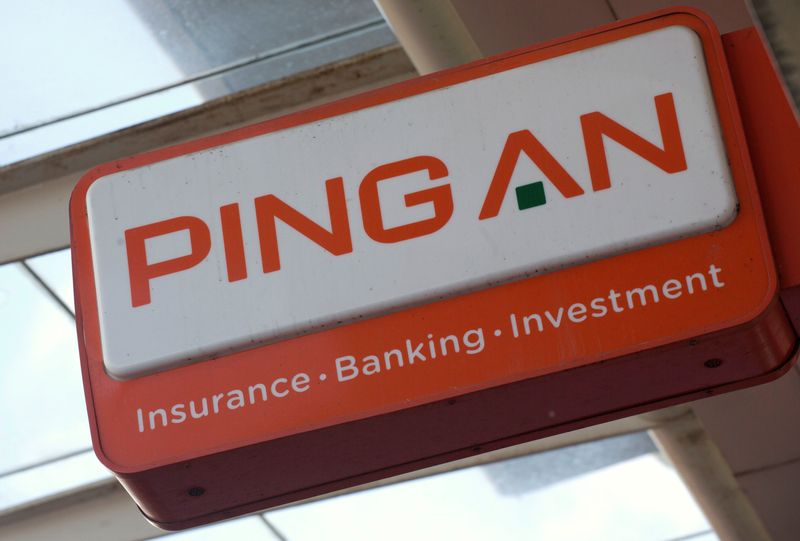
[ad_1]
BEIJING (Reuters) -A subsidiary of China’s Ping An Insurance failed to repay a roughly $107 million trust product on time, citing the property market crisis and adding that it is suing developer Zhenro Properties with which it invested the sum.
Ping An Trust’s missed payment adds to signs of spreading stress in a financial market dragged down by the property crisis.
Concerns have grown over the past year about the outsized exposure of China’s $3 trillion shadow banking sector, roughly the size of Britain’s economy, to developers and the wider economy as the real estate sector lurched from one crisis to another.
Ping An Trust has delayed repayment of its “Funing 615” trust plan, it said in a statement on Wednesday. It said the delay was “due to the overall downturn in the property market”.
The firm said it is actively following up on the project development, sales and the return of funds of the underlying real estate project.
Its overall performance remains stable and its business conditions are sound, it said in the statement.
The trust product matured on March 29 and was launched in September 2021. It raised 772 million yuan ($106.74 million), state media Securities Times reported.
Ping An Trust reported 14.55 billion yuan in revenue last year and had 662.5 billion yuan of assets under management at the end of last year, according to Ping An’s financial report.
Shares of Ping An Insurance fell 0.89% in Shanghai in Thursday morning trade and shed 1.38% in Hong Kong, underperforming the Shanghai and Hong Kong benchmark indexes.
Zhenro Properties did not immediately reply to an emailed request for comment.
HEADWIND TO ECONOMY
The debt crisis engulfing China’s beleaguered property sector is one of the main headwinds to the country’s economic growth, and has led to an uncertain future for some of the biggest real estate developers, including Evergrande Group and Country Garden.
The trust sector had been a major fundraising channel for property developers seeking rapid expansion. But since 2021, when real estate slipped into a downturn, some trusts have gone bust, while others have divested investments in property firms amid Beijing’s stepped up efforts to regulate the shadow banking sector.
The latest wave of missed payments in the shadow banking sector could weigh on already fragile consumer confidence as many individual investors are exposed to the high-yielding trust products.
“Although trust companies have reduced their exposure to real estate, the unchartered waters of wealth management products (WMPs) by non-bank entities can pose more credit risks,” said Alicia Garcia Herrero, chief economist for Asia Pacific at Natixis.
Wealth manager Zhongzhi Enterprise Group filed for bankruptcy liquidation in January after its trust firm failed to repay debt. And early this month, Sichuan Trust was approved to go bankrupt after it failed to pay a wave of WMPs in 2020.
On Wednesday, Shanghai police said in a statement it had launched an investigation into local wealth management firm HHSC Capital. The investigation came after the firm said in a letter to investors it is insolvent and cannot continue operations, local media reported. The firm failed to repay some WMPs last year, they reported.

Calls to the general number of HHSC Capital’s Shanghai office were not answered.
($1 = 7.2326 )
[ad_2]